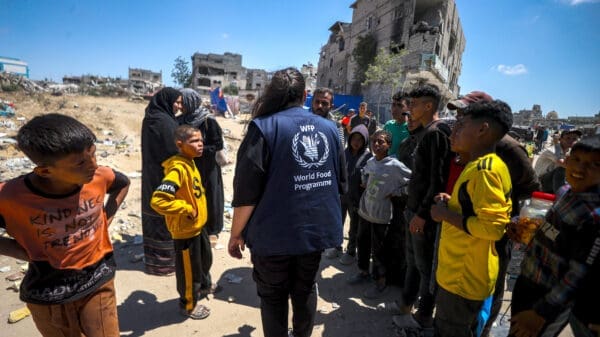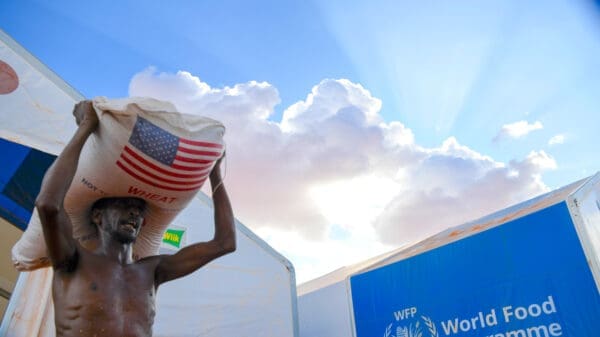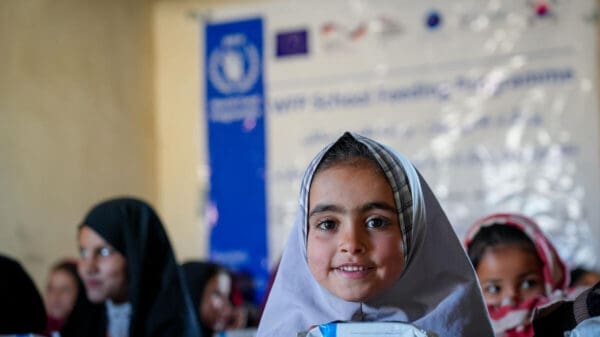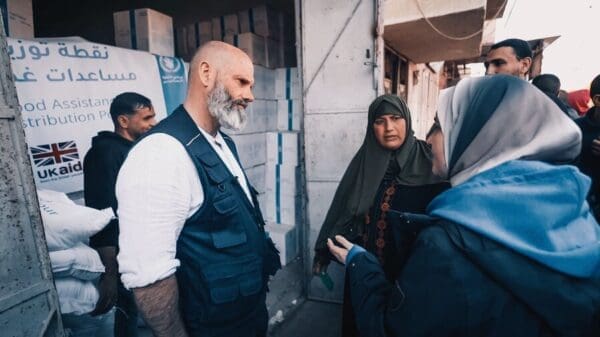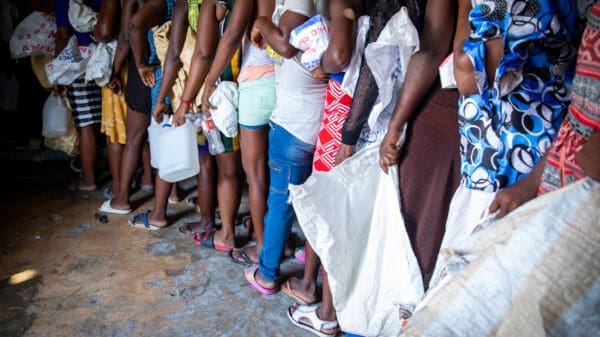International Day of Persons With Disabilities: Standing on the Shoulders of Family and WFP Support
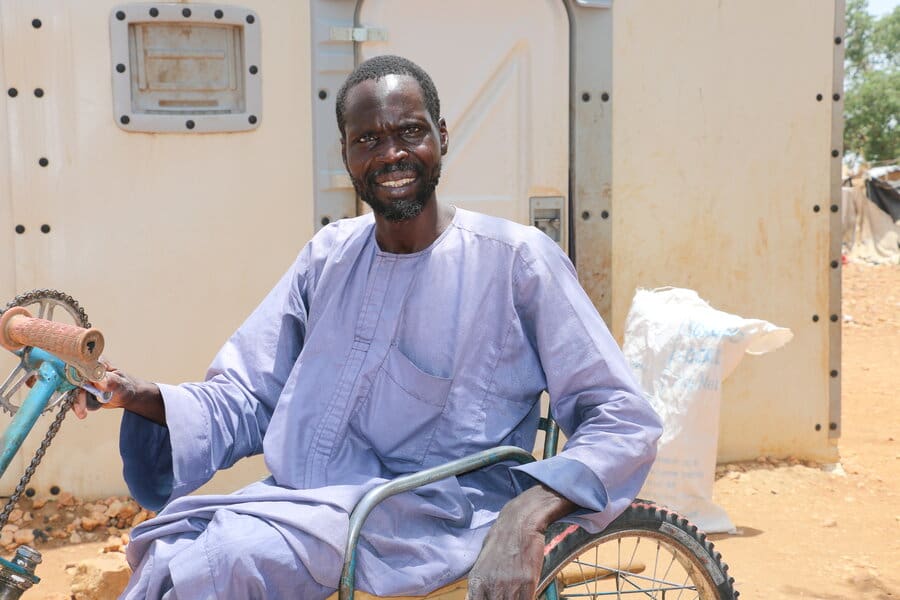
To mark International Day of Persons with Disabilities, we’re taking a look at how the United Nations World Food Programme (WFP) is strengthening family bonds for Nigerian refugees with disabilities.
Zara Bitrus has been disabled for most of her life, but the past five years have posed another challenge: living in a refugee camp.
Zara remembers vividly how helpful her family was the day they fled their home in Kauri, Borno State, Nigeria, where the effects of conflict threatened their survival. She was only 15 then, so her father carried her on his back for many hours until they found transport to Cameroon.
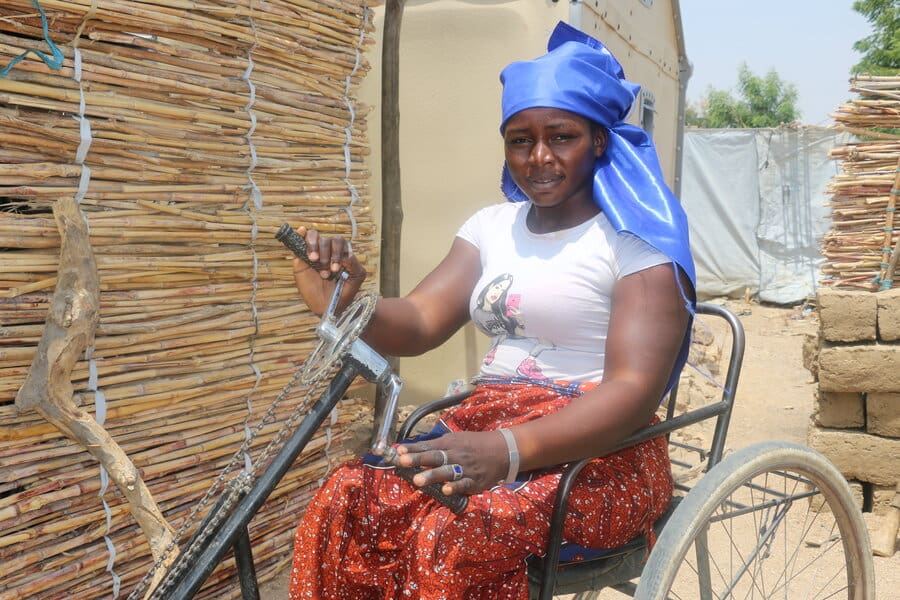
“In everything, my family kept me safe. I don’t know where I would be without them,” Zara says.
At 22, she would like to be more supportive to her family. To achieve this, she recently joined a program in the camp that provides young women with business training and tools like sewing machines.
Every month, the U.N. World Food Programme provides food rations to the over 68,000 Nigerians living in the Minawao camp—one of the largest refugee shelters in Cameroon. When reaching food distribution sites becomes difficult, U.N. World Food Programme and refugee camp staff arrange for rations to be delivered in the comfort of their homes.
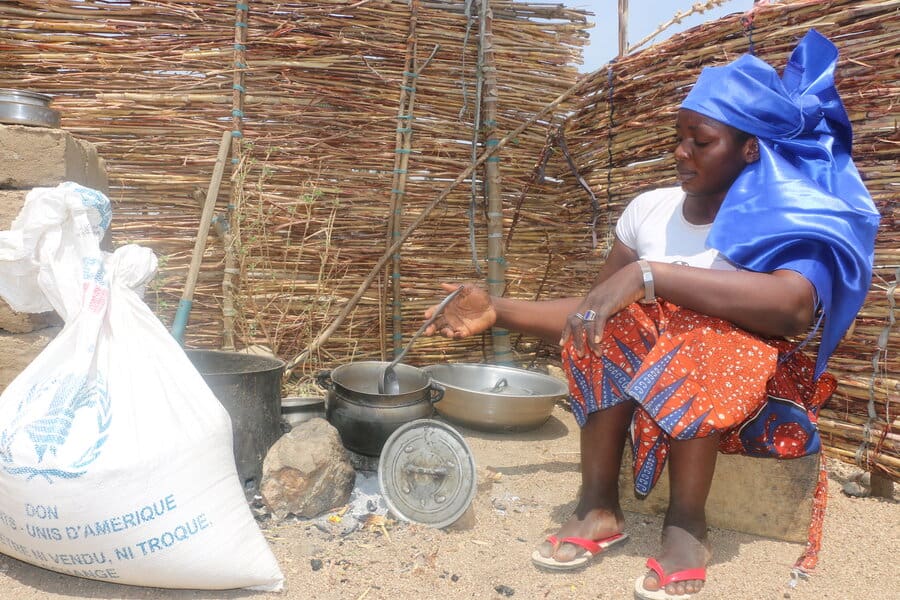
Through the Disability Inclusion Road Map, the U.N. World Food Programme aims to improve how it serves people living with disabilities. This includes creating an inclusive, accessible environment where people are fully involved in decision-making.
Mustapha Habib, a father of four who is also disabled, is determined to secure work and provide for his family.
“People see me and wonder, what can he even do without healthy legs?” Habib says. “I believe that paid work is one of the surest ways to guarantee the sustenance of my family.”

As a graduate, Mustapha hopes to gain a teaching role with the community school in the refugee camp next academic year, as “teaching is the only thing I know how to do,” he says.
Mustapha also stands as a camp representative of what he considers his extended family – other persons with disabilities. He believes it is his responsibility to be the voice of these people, who have felt disproportionately the effects of war.
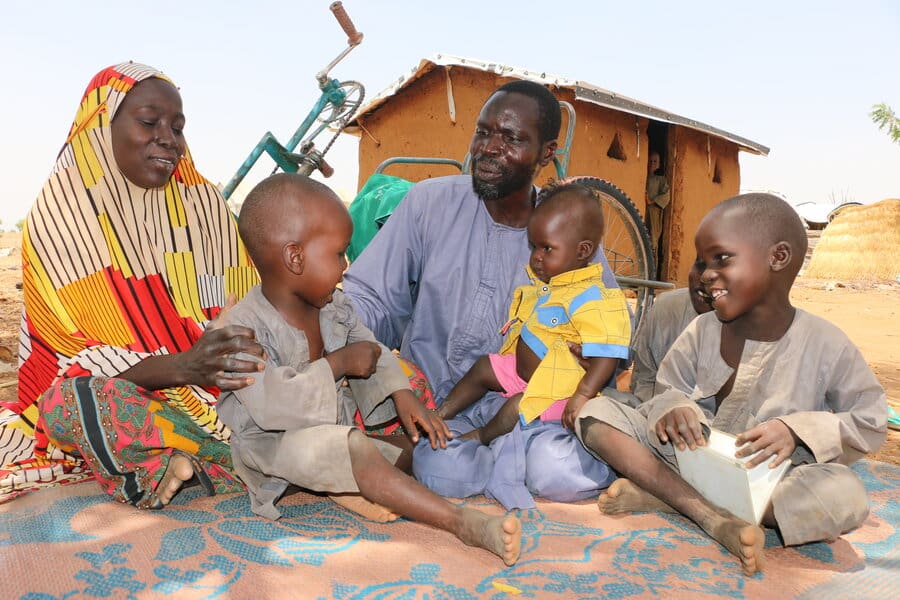
Mustapha and his family receive food assistance from the U.N. World Food Programme.
‘’I am honored to represent people like me,” says Mustapha. “I try to make sure that our worries and difficulties are heard whenever there is a decision or situation that excludes people with disabilities in the camp.’’
Across the globe, the U.N. World Food Programme works to ensure those living with disabilities like Zara and Mustapha are included and no food assistance is left behind.
This story originally appeared on WFP’s Stories on September 30, 2021 and was written by Glory Ndaka.
